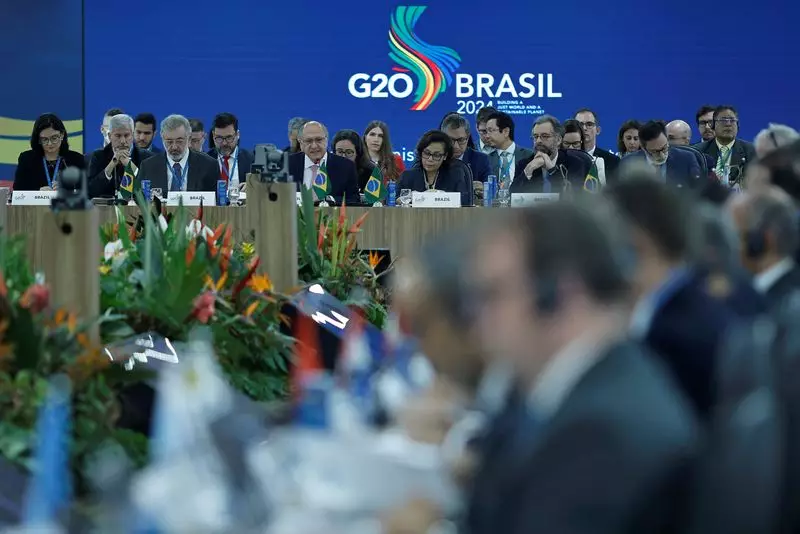In a significant assembly held in Brasilia, G20 nations reaffirmed their dedication to nurturing international trade and investments as vehicles for sustainable development. This decision emerged from a meeting that showcased prominent discussions on the dual challenges of economic growth and environmental sustainability. Brazil’s Vice President and Trade Minister, Geraldo Alckmin, emphasized the need for an adaptable and efficient conflict resolution mechanism within the World Trade Organization (WTO). The ministers recognized that a reformed WTO could provide a foundation for a more effective multilateral trading system, addressing the complexities of modern global commerce.
For the first time in its history, the G20 has formally recognized the necessity of enhancing women’s participation in international trade. Minister Alckmin highlighted Brazilian President Luiz Inácio Lula da Silva’s insistence on this issue, which was positioned at the forefront of discussions. The push for gender inclusivity signals a transformative shift in global trade narratives, aiming to empower women as key stakeholders. With this commitment, the G20 leadership, which will convene in Rio de Janeiro later this year, is set to incorporate this vital principle into their joint declaration, signaling the group’s progressive vision for inclusive economic participation.
As Brazil prepares to host the COP30 climate talks, it is not surprising that climate change was a pivotal theme in the G20 discussions. The ministers agreed that trade must be aligned with environmental sustainability, urging member countries to adopt investment strategies that bolster climate-conscious economic initiatives. This correlation between trade and climate policy underscores the growing acknowledgment that economic activities must evolve in harmony with environmental imperatives to pave the way for a more resilient global ecosystem.
While striving for consensus, the G20 trade ministers tactfully sidestepped deeply divisive geopolitical topics, such as the ongoing crises involving Russia and Ukraine, and tensions in Gaza. Despite varying opinions on the appropriateness of addressing such issues within the G20 framework, the ministers collectively focused on building a united front regarding the principles of fair and transparent trade. An Asian diplomat involved in the discussions remarked on the delicate balance achieved in shaping the meeting’s outcomes, noting that while disagreements occurred during drafting, a collaborative spirit ultimately prevailed.
As the G20 prepares for its November summit in Rio, the groundwork laid in Brasilia will likely shape the trajectory of global trade discussions for years to come. Ministers’ commitment to prioritize inclusivity, sustainability, and comprehensive WTO reform sets an ambitious agenda. Their ongoing efforts will not only seek to stabilize international trade but will also aim to cultivate an investment climate that favors equitable growth. As nations look toward a transformative future, fostering inclusion and sustainability within trade practices appears not just beneficial, but essential for lasting global progress.

